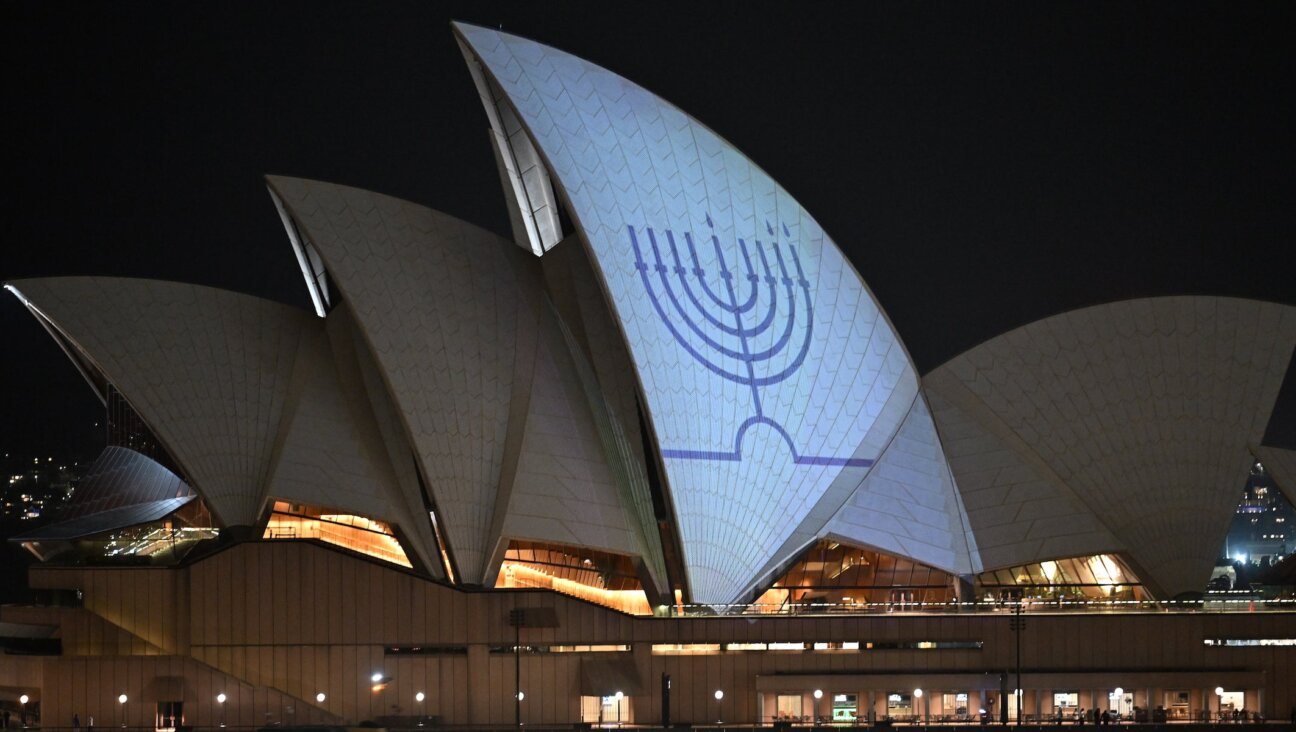White House Access? Step Right In!
One month into the Obama presidency, Jewish communal leaders seeking high-level access appear to have come crashing through an open door.
Within four days in mid-February, community leaders were invited to two high-level conference calls — one with senior foreign policy officials to discuss the upcoming United Nations-sponsored Durban II conference on racism, and the other with Middle East special envoy George Mitchell. Attorney General Eric Holder is scheduled to speak in March at the annual plenum of the Jewish Council for Public Affairs, an umbrella organization of public policy groups.
“It’s clear that Obama himself believes in outreach with a capital O,” said Union of Orthodox Jewish Congregations public policy director, Nathan Diament, who participated in the calls.
This access may be deployed in part to ease community concerns about policy shifts that Jewish groups might find unwelcome. Many advocates fear that the Durban II conference, set to take place in Geneva in April, for example, will replicate the first Durban conference’s strident focus on purported Israeli and Zionist racism. Some Jewish groups urge Washington simply to boycott. The administration has indicated that it plans to address Jewish concerns during pre-conference agenda negotiations with other countries.
“It is clear they have things to say to the Jewish community, and it’s good they are saying them,” said one pro-Israel activist, speaking on condition of anonymity.
Communal leaders say the administration’s efforts to connect with them appear to be a down payment on campaign promises of full transparency and outreach to all communities.
Initial administration outreach has departed somewhat from previous presidents’ approaches. In assembling invitation lists, the White House does not limit itself to working through the Conference of Presidents of Major American Jewish Organizations, the Jewish establishment’s formal foreign-policy voice to the executive branch. Ideologically diverse groups outside that orbit, such as the New Israel Fund and The Israel Project, have become regular participants in administration meetings.
The White House has also broken with tradition in not yet naming one individual as designated Jewish community liaison. Nonetheless, the job is still done, as in the past, by the Office of Public Liaison, now headed by Tina Tchen, who coordinated and moderated the recent conference calls.
Two White House staffers conduct daily outreach: Susan Sher, associate counsel to the president, and vice presidential staffer Danielle Borrin. Both are considered to have strong Jewish community ties. Sher was involved with the community in Chicago, and Borrin interned in the Washington office of United Jewish Communities before joining the staff of then-senator Joe Biden.
“Instead of having one point person, one e-mail address, one phone number to call, we have three,” said William Daroff, head of the UJC Washington office.
It is still not clear if and when the White House will name a full-time Jewish community liaison. Tchen has cited budgetary constraints as the reason the position remains unfilled. But a former Bush administration official scoffed at this, arguing, “There will always be resources to meet the president’s political needs.”
Dealing with the organized Jewish community’s myriad political connections has challenged every administration in designing its communications strategy. Previous administrations have had to juggle Jewish advocates’ expectations of having their own White House point person with the often contradictory desire for direct access to higher levels.
In this administration, as in others, certain senior officials have become de facto channels for lobbying, information and dialogue. Dan Shapiro, Middle East affairs director at the National Security Council, is seen as an address for Jewish groups on foreign policy issues. A former aide to Florida Democratic Senator Bill Nelson, Shapiro worked at the National Security Council during the Clinton administration and was a liaison on Middle East issues in Obama’s presidential campaign.
Another White House address is chief of staff Rahm Emanuel, who has longstanding ties with Jewish leaders both in Chicago and nationally, though his top position makes him less accessible than others.
In Mitchell’s hour-long February 19 conference call with Jewish leaders, the envoy made clear that he wanted to hear community activists’ views. He also spoke directly to some of their concerns, said one participant who took notes. Aware of criticism of his 2001 report on the Israeli-Palestinian conflict, Mitchell noted, “On the plane back from the region, I read my report from eight years ago and saw how the reality on the ground has changed.”
While the 2001 report does not mention the word “Iran,” he said, the issue was raised in the first sentence of every conversation in his latest talks.
The former Maine senator also tried to ease concerns regarding his views on settlements, saying they were only one issue among many that will have to be dealt with by the administration, not an exclusive focus.
















